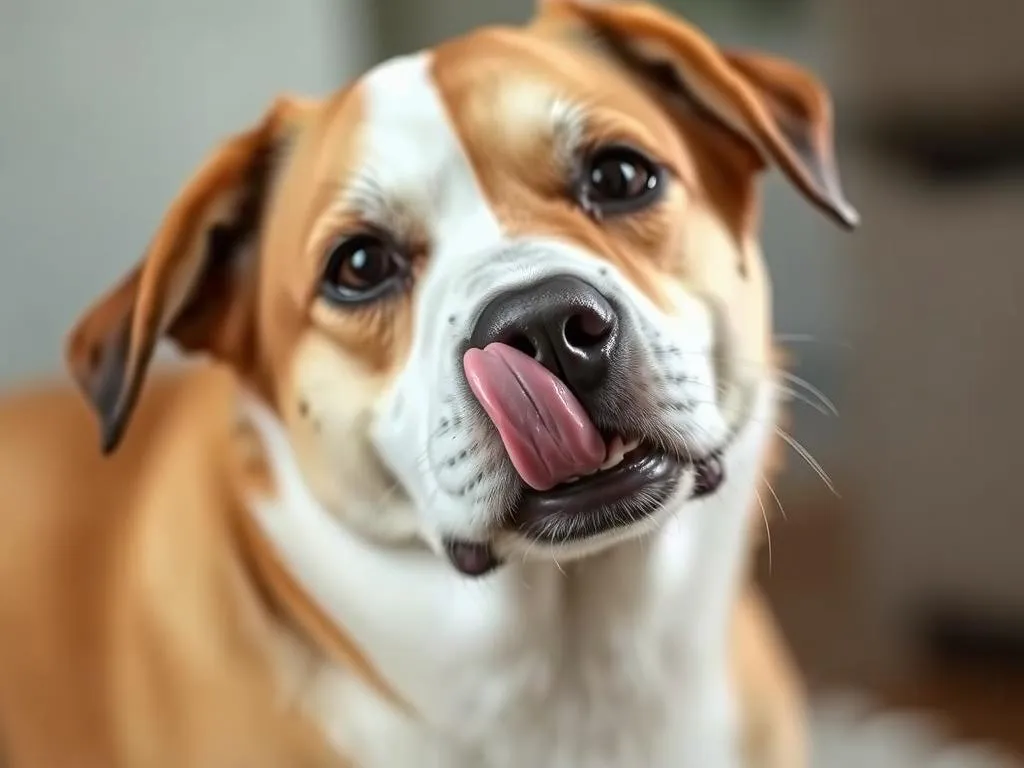
Introduction
As a dog owner, witnessing your furry friend engaging in excessive licking can be concerning. While some licking is a part of normal canine behavior, when it becomes excessive, it raises the question: why is my dog licking herself so much? Understanding the reasons behind this behavior is crucial for ensuring your dog’s health and well-being. This article aims to explore the various causes of excessive licking, offer insights into potential solutions, and guide you in maintaining your dog’s overall health.
Understanding Normal Dog Behavior
What is Normal Licking?
Dogs naturally lick themselves for various reasons. This behavior, often seen during grooming, is a normal part of their routine. Licking serves multiple purposes, including:
- Grooming: Dogs lick to clean their fur and skin, removing dirt and debris.
- Communication: Licking can be a way for dogs to communicate with their owners or other dogs, signaling affection or submission.
- Self-soothing: Licking can provide comfort and relaxation, especially in stressful situations.
When Does Licking Become a Concern?
While some licking is normal, it’s essential to recognize when it escalates to a concerning level. Signs of excessive licking may include:
- Frequent licking of specific areas
- Red, inflamed, or irritated skin
- Hair loss or bald patches
- Development of sores or infections
Understanding the difference between normal and abnormal licking behavior is vital for addressing potential health issues.
Common Reasons for Excessive Licking
Allergies
One of the most common reasons dogs may engage in excessive licking is allergies. Dogs can suffer from environmental allergies (like pollen or dust mites) or food allergies (such as specific proteins or grains).
Symptoms of allergies may include:
- Itchy skin
- Red or inflamed areas
- Ear infections
- Gastrointestinal upset
Allergies often lead to licking as dogs attempt to soothe their irritated skin.
Skin Conditions
Various skin conditions can also result in excessive licking. Common issues include:
- Dermatitis: Inflammation of the skin can cause discomfort and itching.
- Hot spots: These are localized areas of inflamed skin that can be painful and lead to further licking.
Dogs may exhibit signs of skin irritation, such as redness, swelling, or discharge. Identifying and addressing these conditions promptly is essential for your dog’s health.
Parasites
Parasites like fleas, ticks, and mites can cause significant discomfort, leading to excessive licking.
Common signs of parasitic infestations include:
- Frequent scratching or biting at the skin
- Hair loss
- Skin infections
Preventive measures, such as regular flea and tick treatments, can help minimize these issues.
Anxiety and Stress
Emotional health plays a crucial role in a dog’s overall well-being. Excessive licking can often be a sign of anxiety or stress.
Signs of anxiety in dogs may include:
- Whining or barking excessively
- Destructive behavior
- Hiding or seeking isolation
Managing your dog’s stress through training, socialization, and providing a stable environment can help reduce excessive licking.
Boredom and Lack of Stimulation
Dogs that lack mental and physical stimulation may resort to compulsive behaviors, including excessive licking.
Some activities to keep dogs mentally stimulated include:
- Interactive toys that challenge their problem-solving skills
- Regular walks and play sessions
- Training exercises and obedience classes
Providing a variety of activities can help mitigate boredom and reduce licking behavior.
When to Seek Veterinary Help
Identifying Serious Issues
If you notice signs of excessive licking, it’s essential to consult a veterinarian. Some serious issues may include:
- Persistent skin infections
- Unexplained weight loss
- Changes in appetite or behavior
Professional diagnosis is crucial for identifying underlying health problems and determining the most effective treatment.
What to Expect at the Vet
During your visit, the veterinarian may perform several diagnostic procedures, such as:
- Skin tests to identify allergies or infections
- Blood tests to check for underlying health conditions
- Allergy tests to pinpoint specific triggers
Based on the findings, your vet will recommend appropriate treatments, which may include medications, special diets, or topical treatments.
Preventive Care and Best Practices
Regular Grooming
Maintaining a regular grooming routine is essential for preventing skin issues that can lead to excessive licking.
Tips for effective grooming include:
- Brushing your dog’s fur regularly to remove loose hair and dirt
- Bathing with dog-specific shampoos to maintain skin health
- Checking for signs of irritation or parasites during grooming sessions
Healthy Diet
A balanced diet plays a significant role in your dog’s skin health.
Consider the following:
- Look for high-quality dog foods with natural ingredients and limited fillers.
- Consult your veterinarian about diets specifically designed for dogs prone to allergies.
Mental and Physical Exercise
Regular exercise is crucial for a dog’s mental and physical well-being.
Suggested activities include:
- Daily walks to keep your dog physically active
- Engaging games like fetch or tug-of-war to stimulate their mind
- Interactive playdates with other dogs to enhance social skills
Stress Reduction Techniques
Creating a calming environment can help reduce anxiety-related licking.
Consider these techniques:
- Designate a quiet space in your home for your dog to retreat when feeling stressed.
- Use products like pheromone diffusers or calming collars to create a soothing atmosphere.
Home Remedies and Natural Solutions
Soothing Baths and Topical Treatments
Homemade soothing baths can help alleviate skin irritation.
Recipes for soothing baths include:
- Oatmeal Bath: Blend plain oatmeal into a fine powder and add it to warm bath water. This can soothe itchy skin.
- Aloe Vera Gel: Apply pure aloe vera gel directly to irritated areas for its calming properties.
Dietary Supplements
Certain dietary supplements may help alleviate itching and irritation.
Common options include:
- Omega-3 fatty acids, which promote skin health and reduce inflammation.
- Probiotics that support gut health and overall well-being.
Always consult your veterinarian before introducing any new supplements to your dog’s diet.
Conclusion
In conclusion, understanding why is my dog licking herself so much is essential for maintaining her health and happiness. While some licking is normal, excessive licking can indicate underlying health issues that require attention. By recognizing the signs of excessive licking, exploring common causes, and implementing preventive care strategies, you can help ensure your dog leads a healthy and fulfilling life. Proactive health care and timely intervention can make all the difference in your dog’s well-being.
Incorporating regular grooming, a balanced diet, sufficient exercise, and stress reduction techniques into your dog’s routine can significantly reduce excessive licking. Always remain vigilant for changes in behavior and consult your veterinarian when in doubt. Your furry friend deserves the best care possible!









